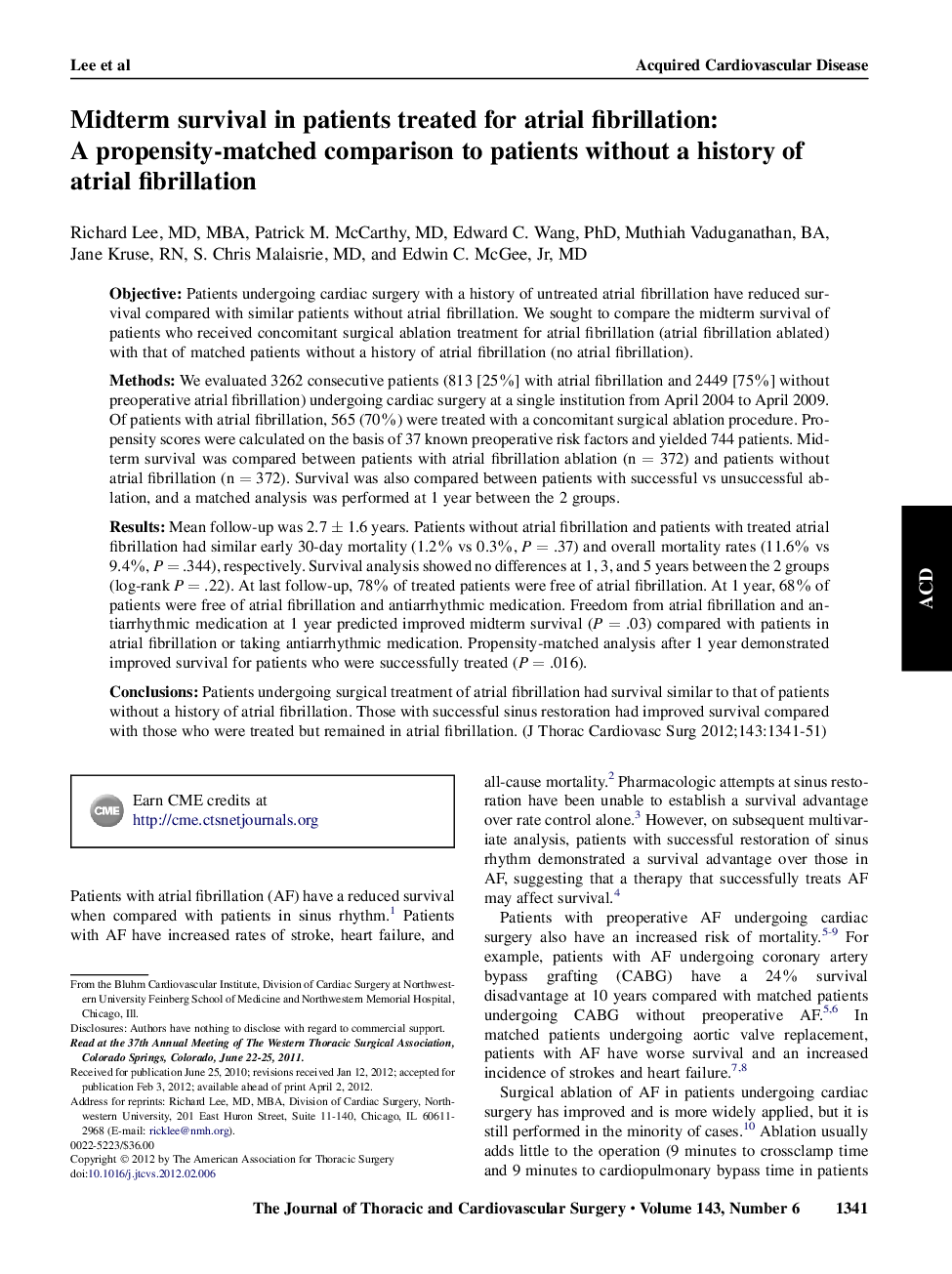| Article ID | Journal | Published Year | Pages | File Type |
|---|---|---|---|---|
| 5990863 | The Journal of Thoracic and Cardiovascular Surgery | 2012 | 11 Pages |
ObjectivePatients undergoing cardiac surgery with a history of untreated atrial fibrillation have reduced survival compared with similar patients without atrial fibrillation. We sought to compare the midterm survival of patients who received concomitant surgical ablation treatment for atrial fibrillation (atrial fibrillation ablated) with that of matched patients without a history of atrial fibrillation (no atrial fibrillation).MethodsWe evaluated 3262 consecutive patients (813 [25%] with atrial fibrillation and 2449 [75%] without preoperative atrial fibrillation) undergoing cardiac surgery at a single institution from April 2004 to April 2009. Of patients with atrial fibrillation, 565 (70%) were treated with a concomitant surgical ablation procedure. Propensity scores were calculated on the basis of 37 known preoperative risk factors and yielded 744 patients. Midterm survival was compared between patients with atrial fibrillation ablation (n = 372) and patients without atrial fibrillation (n = 372). Survival was also compared between patients with successful vs unsuccessful ablation, and a matched analysis was performed at 1 year between the 2 groups.ResultsMean follow-up was 2.7 ± 1.6 years. Patients without atrial fibrillation and patients with treated atrial fibrillation had similar early 30-day mortality (1.2% vs 0.3%, P = .37) and overall mortality rates (11.6% vs 9.4%, P = .344), respectively. Survival analysis showed no differences at 1, 3, and 5 years between the 2 groups (log-rank P = .22). At last follow-up, 78% of treated patients were free of atrial fibrillation. At 1 year, 68% of patients were free of atrial fibrillation and antiarrhythmic medication. Freedom from atrial fibrillation and antiarrhythmic medication at 1 year predicted improved midterm survival (P = .03) compared with patients in atrial fibrillation or taking antiarrhythmic medication. Propensity-matched analysis after 1 year demonstrated improved survival for patients who were successfully treated (P = .016).ConclusionsPatients undergoing surgical treatment of atrial fibrillation had survival similar to that of patients without a history of atrial fibrillation. Those with successful sinus restoration had improved survival compared with those who were treated but remained in atrial fibrillation.
